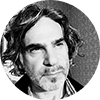For 20 years I’ve been saying that the foundation for creating demand for healthcare brands starts by making emotional connections with healthcare professionals. Now I’ve found yet another piece of evidence that provides strong support.
Pharmalot reported on a Harris Interactive survey that demonstrated that when physicians have an emotional connection to healthcare brands, it raises their level of trust.
Seven hundred fifty-nine physicians — including primary care physicians, psychiatrists, urologists, and endocrinologists — were asked to examine attributes that gauge trust for 26 drugs from four therapeutic areas (antidepressants, antipsychotics, erectile dysfunction drugs, and non-insulin diabetes therapies). Drug functionality was cited as most important by 29% of physicians, closely followed by emotional connection (27%). Emotional connection was defined as whether the physicians indentified with the medication and had positive feelings about it, and whether the medication inspired confidence and added value to their medical practice.
We have driven demand for more than a handful of healthcare brands that could never win a data war. But we compelled healthcare professionals to choose those brands over their data-rich competitors. We won by truly understanding how healthcare professionals think and the unique challenges they face. Of course, there is a great deal more to this process (see my 3-part series, “When pen meets paper”). But the end result is always the same: triggering an emotional response that strongly resonates with healthcare professionals —and that drives demand for brands that understand them and help solve a healthcare problem. Sometimes we solve a problem that they aren’t even conscious of.
The Harris Interactive survey proves that physicians can be emotionally driven to take action or make changes to ingrained behaviors. If I were to rewrite the lyrics from the old rock song, “Bridge to Your Heart,” I would say: “Make a new start, build a bridge to physician’s hearts.”
RELATED TOPICS

Ken is a great deal more than just the president of a medical communications company. He is something of a hybrid. He’s part marketing manager, part creative director, and part copywriter. To the chagrin of his peers—but to the delight of his clients—Ken is a consummate perfectionist. As a former creative director for a high-end consumer agency, he challenged his creative teams to go beyond the mundane to produce work with real creative impact, something he’s just as fervent about today. From producing and directing TV commercials, to launching DTC and Rx-to-OTC switches, Ken brings his clients a world of experience in OTC pharmaceuticals as well as business, lifestyle, and high-end consumer products and services. Whether huddled with clients behind a mirror in a market research center in Houston, facilitating a strategic workshop in Madrid, or developing a global campaign either in the New Jersey or California office, Ken is always fully engaged, bringing “bestness” to all areas of his hectic but full life.
